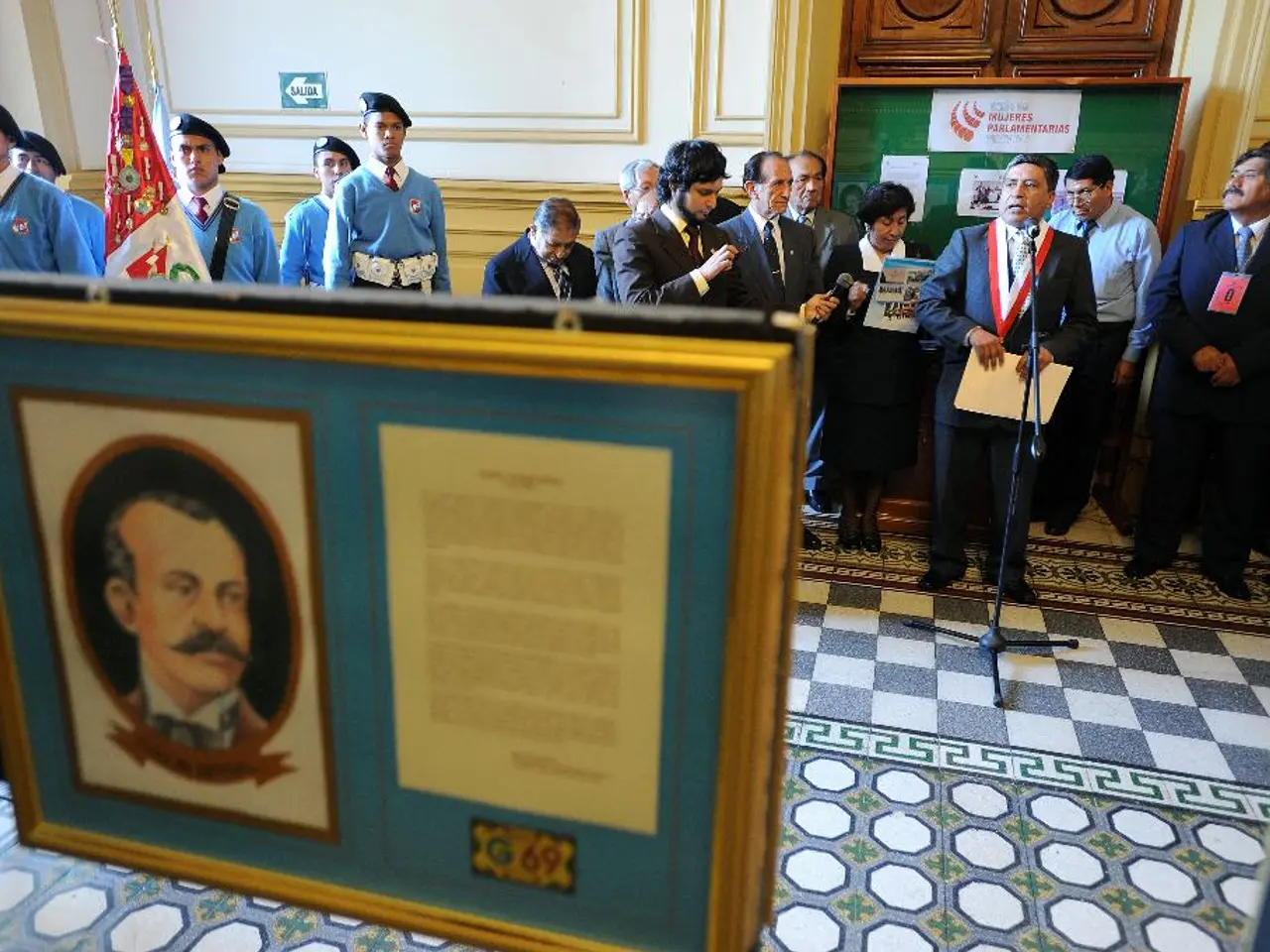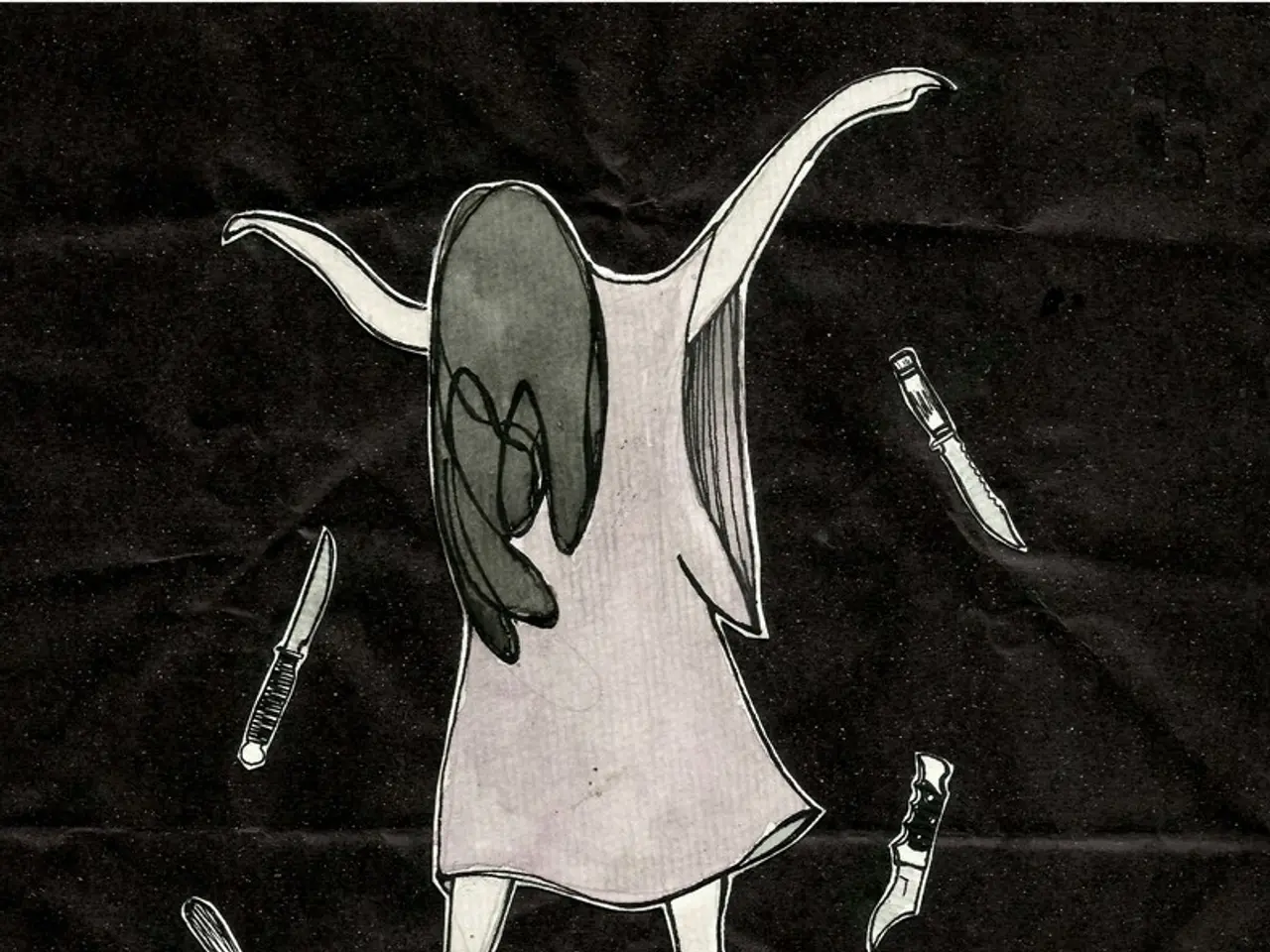Parliament Examining UK-Israel Arms Exports for Testimony from Former Soldier Justifying Gaza Casualties
In a move that has sparked controversy, a UK parliamentary committee is currently examining the country's weapons exports to Israel. The committee's composition, which includes Colonel Richard Kemp, a former British army officer, and Natasha Hausdorff from UK Lawyers for Israel (UKLFI), has been a subject of criticism.
The UK has faced criticism for its arms exports to Israel, particularly due to concerns about their potential use in conflicts, such as in Gaza. Last September, the UK government imposed a partial suspension on arms exports to mitigate the risk of serious violations of international humanitarian law. However, components for F-35 fighter jets were exempted from this suspension, a point of contention.
Al-Haq, a Palestinian human rights organization, along with other groups like Human Rights Watch and Amnesty International, have challenged the UK's decision to continue exporting F-35 components. Despite acknowledging the risk of these components being used in breaches of humanitarian law, the High Court ruled that such exports could continue, citing judicial deference to political decisions.
Civil society and Palestinian organizations have expressed strong criticism of the UK's current policies regarding arms exports to Israel. They argue that these exports contribute to violations of international humanitarian law and exacerbate the humanitarian crisis in Gaza. Many of these organizations advocate for a comprehensive arms embargo on Israel, arguing that the current partial suspension does not adequately address the risks involved.
The legal challenges mounted by these organizations highlight the broader issue of how the UK's arms export regime is perceived as inadequate in ensuring compliance with international law, particularly in sensitive geopolitical contexts like the Israel-Palestine conflict.
Colonel Kemp, known for his vocal support of Israel's war against Hamas, has been a trustee of a British charity that fundraises for Israeli soldiers. In a deleted YouTube video, Kemp stated that the fight of Israeli soldiers is for the survival of Israel and western civilization. UKLFI, where Ms. Hausdorff serves as legal director, disputes interpretations of a preliminary judgment by the International Court of Justice regarding potential Israeli genocide in Gaza.
The committee's decision to include Colonel Kemp and Ms. Hausdorff has been criticized by several groups, including the Campaign Against the Arms Trade (CAAT) and the Council for Arab-British Understanding (Caabu). Emily Apple, media coordinator for CAAT, criticized the committee for not inviting civil society organizations or Palestinian organizations with knowledge of the impact of UK-supplied weapons and components in Gaza to give evidence. Chris Doyle, director of Caabu, also criticized the committee's decision.
The business and trade committee, the foreign office, and the department for business and trade have not responded to requests for comment regarding the inclusion of Colonel Kemp and UKLFI in the parliamentary committee. The case regarding the renewed legal challenge over continuing arms exports to Israel is not due to be heard until October.
Lord Ricketts, a former national security adviser, stated that British arms licences cannot be granted if there is a clear risk that the items might be used to commit or facilitate a serious violation of international humanitarian law. The parliamentary committee hearing evidence from Colonel Kemp, Ms. Hausdorff, Anne-Marie Trevelyan, a foreign office minister, and Alan Mak, a minister in the department for business and trade, is scheduled for Wednesday.
Two members of the House of Lords, who have called on the government to halt weapons sales because of concerns about possible Israeli war crimes, will also give evidence. The outcome of this investigation and the committee's findings remain to be seen, but the controversy surrounding its composition and the broader concerns about UK arms exports to Israel continue to be a topic of discussion.
- The controversy surrounding the UK's weapons exports to Israel, particularly for potential use in conflicts like Gaza, has been a topic of general news.
- Last September, the UK government imposed a partial suspension on arms exports to Israel due to concerns about violations of international humanitarian law.
- Al-Haq, along with other organizations like Human Rights Watch and Amnesty International, have challenged the UK's decision to continue exporting F-35 components, arguing that it exacerbates the humanitarian crisis in Gaza.
- The legal challenges mounted by these organizations highlight the inadequacy of the UK's arms export regime in ensuring compliance with international law, especially in sensitive contexts like the Israel-Palestine conflict.
- Colonel Kemp, known for his support of Israel's war against Hamas, and Ms. Hausdorff from UK Lawyers for Israel have been included in the UK parliamentary committee examining weapons exports to Israel, a move that has sparked criticism.
- In the field of crime and justice, the case regarding the renewed legal challenge over continuing arms exports to Israel is not due to be heard until October.
- In the world of sports-betting, this controversy might not seem directly related, but some might interpret it as another example of politics impacting business deals, including trade agreements.
- The outcome of the parliamentary committee's investigation and its findings remain to be seen, but the controversy surrounding its composition and the broader concerns about UK arms exports to Israel continue to be a topic of debates in opinion sections of the media,policy-and-legislation, as well as in sports talk shows where discussions about power dynamics and social issues often take place.








